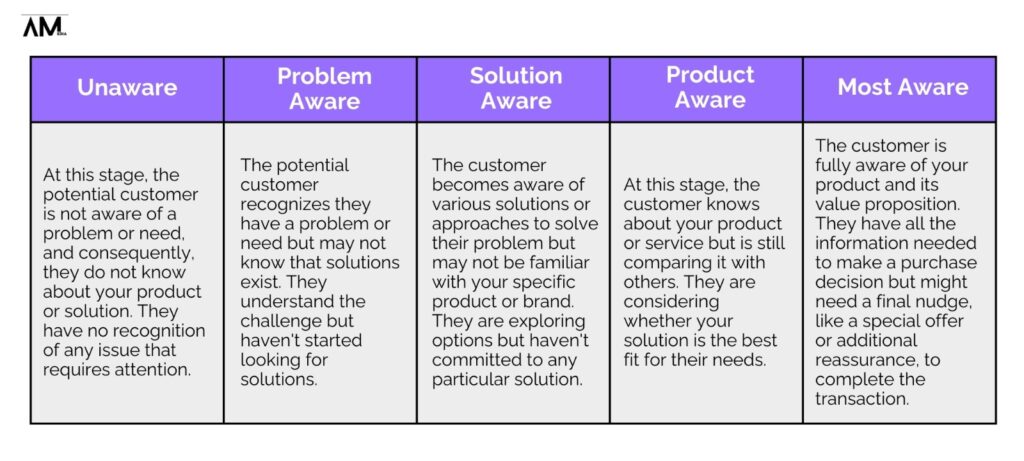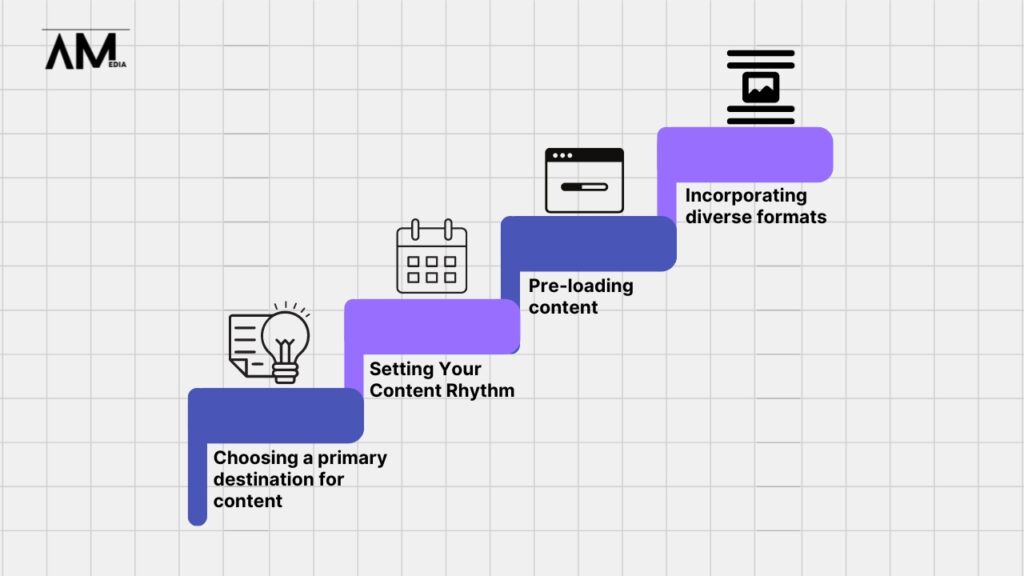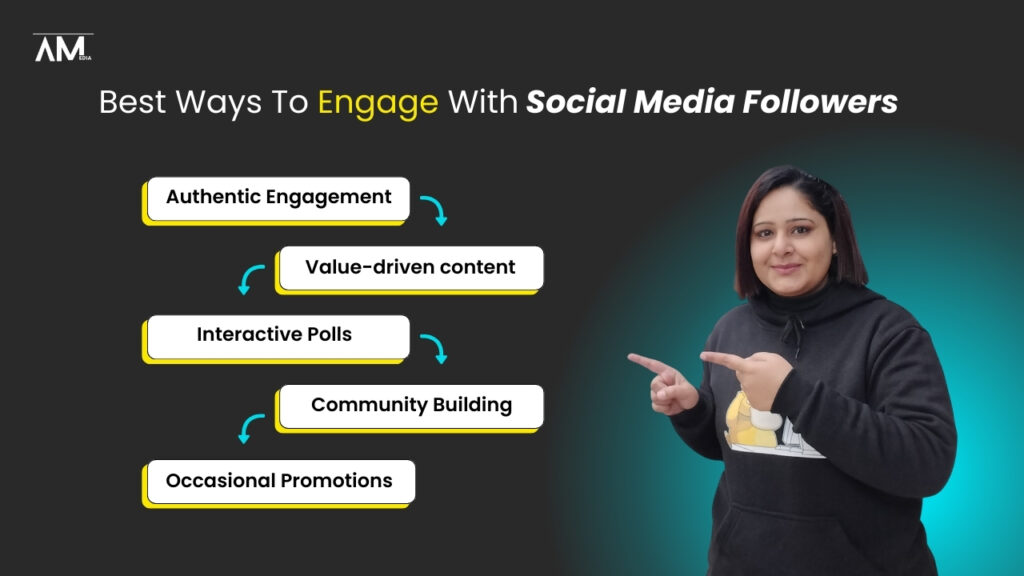If you know how to sell on social media, you can increase sales for your business without burning money on ads. Social media marketing is a cheaper way to grow your sales by reaching people on channels they already are. By creating good content for social media, you can reach a larger audience, which will increase your chances of getting more eyeballs from your prospects.
Why do Businesses need to be on Social Media?
- Social media can help businesses in gaining a better understanding of customers.
- Social media influence 71% of consumer buying decisions.
- Shoppers are 29 percent more likely to make a purchase the same day when they use social media to help shop either before or during their trip (90 percent vs. 70 percent conversion).
- Consumers who use social media during their shopping process are ≈4x more likely than non-users to spend more or significantly more on purchases as a result of a digital shopping experience.
- Respondents who consider themselves somewhat or very influenced by social media are 6x more likely to spend significantly more than non-users (42 percent vs. 7 percent) due to their digital shopping experiences.
- 75% of consumers said product information found on social channels influenced their shopping behavior and enhanced brand loyalty
The above data shows that it is important to have a profile on social media. Customers expect it, and it’s also a great way to find out more about your target group and connect with people online.
With organic social media marketing, you can get to know your customers and find better ways to promote your goods and services.
What is Social Media Marketing?
Social media marketing means using sites like Facebook, Instagram, Twitter, LinkedIn, and TikTok to reach more people and promote your products or services.
Social media marketing is an important part of any small business’s marketing plan, but it needs a solid plan. Your customers want to see interesting material and be able to talk to you directly through comments and direct messages.
Effective social media marketing for small businesses lets you put a face on your brand and get people to come back to your website. With social media promotion, you can also get leads and make sales, as well as make more people aware of your brand. Many small businesses even use social media to help with customer service, letting customers send them direct messages to solve problems and ask questions.
How to Market Your Business on Social Media
Social media is an important part of any marketing plan, but small business owners who don’t know how to use the different platforms may find it hard to get started.
Social media marketing is a good thing because it’s easy to learn and doesn’t take a lot of time or money. Any budget can support a strong social media marketing plan as long as you know your customers and can regularly make content that will keep them interested.
Here’s how to use social media to market your business.
1. Define Purpose of Social Media Marketing For Your Business
You may think that it is pretty obvious that you are using social media to promote your brand. However, the word promote is vague.
Here are some purposes social media serves for your business:
- You can use social media to spread brand awareness about your business.
- You can use social media marketing to promote your particular product or service.
- Social media can help you get sales by reaching your ideal customers without spending money on ads.
While all these are crucial for all businesses, they are not a priority all the time. A business merely making any sale, needs to focus on social media marketing strategized to drive leads. On the other hand, a business doing good in offline marketing and generating good sales needs to focus on building brand awareness.
Therefore, you must define the purpose for your social media marketing efforts, before taking any action.
2. Build Your Ideal Customer Avatar
The most cliche tip, no matter what you search about marketing. However, very few sources share what it means to build or define a customer avatar.
The most important part of making a customer avatar is to define the “awareness stage” of your ideal customer.
The customer awareness stage refers to the level of familiarity and understanding that potential customers have about a problem, need, or desire, and the solutions or products available to address it. It is a critical concept in marketing and sales strategies because it helps businesses tailor their communication and content to meet the audience where they are in their journey toward making a purchase.
Creating content without knowing the awareness stage of your ideal customer will only lead to making worthless content who are ready to pay you money.
Here is what we mean by creating content according to the awareness stage of the ideal customer:
We will be taking the example of people in their early 30s who eat out a lot, with lean figures and corporate jobs who get tired very quickly. According to the example, these people believe that their sedentary lifestyle is the reason for them getting tired easily. However, the real reason is underlying diseases caused by eating out regularly. Now see below how the customer awareness scale applies to these people:

- Unaware: Unaware people are those who don’t realize that eating out every day can lead to several diseases such as indigestion, inflammation, high blood cholesterol levels, and whatnot. Thus they believe that their sedentary lifestyle decreased their stamina. Therefore, they get tired easily.
However, any market has the highest number of totally unaware audiences. While you will have a broader audience, targeting them is not profitable because you will have to spend enormous resources such as time and money to educate them about your product and why they should buy it.
Still, bigger brands that have larger marketing budgets target these people, as they get the advantage of anchoring their perspective as the pioneer.
- Problem Aware: These people know that eating out every day is causing them health problems. However, they don’t know what to do about it as they are too busy to cook full meals. These people are good to target and for that, you need to create content that specifically educates these people. For example- what to eat as a busy office worker?
However, it is not compulsory to target only problem-aware people. You can target multiple categories of people by using a good social media strategy that compliments your business needs. - Solution Aware: The third category is lesser in number in comparison to the first and second categories. Social media marketing is an amazing option to target these people as nowadays people tend to trust social media more and more for discovering new products and services. Often when people are introduced to any solution, they look at the social media handles of the brand to look up what the brand is.
So, to target these people create content that can educate them about possible solutions to their problem. For example – “5 Quick meals for 9-5 workers, that are healthy and tasty.” - Product Aware: These are the people that you want to target.
Why?
Because they know that a solution exists for their problem and which solution they need. The only information, they need is why your product/service is better than all the options available in the market. Thus testimonial and social proof posts will work best to target these people. - Most Aware: The lowest hanging fruits in the market or most aware people, these people don’t need to be educated about the ABC of the problem. They know everything and they have also made up their mind about which product they are going to buy. All they need to buy is sometimes a reminder, sometimes a special offer and they are sold.
So, targeting the most aware people is the most is the best social media strategy for any business.
But how do you target them? Keep on reading to find out.
Also Read: Podcast Advertising: Is It Right For Your Business?
3. Define Your Goals And KPIs
A social media strategy without pre-defined KPIs is nothing but a daydream.
KPI means key performance indicators. Simply put, they are a scale that helps you measure how well your social media strategy is performing.
Below is a table of 25 KPIs that you should know:
| KPI | Meaning/Definition | When to Track |
| Engagement | Interactions with your content (likes, shares, comments) | Continuously to measure audience engagement |
| Follower Growth | Increase in the number of followers over time | Regularly to monitor brand popularity |
| Conversions | Actions that fulfill a desired goal (purchases, sign-ups) | After specific campaigns or actions |
| Reach | Number of people who see your content | Continuously to gauge content reach |
| Impressions | Number of times your content is displayed | Regularly to understand content visibility |
| Follower Count | Total number of followers on a social channel | Periodically to measure channel growth |
| Audience Growth Rate | Rate at which followers are gained or lost | Monthly or quarterly for trend analysis |
| Website Traffic | Visitors to your website from social media platforms | After directing traffic to the site via social media |
| Likes | Number of ‘likes’ on your content | After content is posted to measure appeal |
| Comments | Number of comments on your posts | Continuously to gauge audience interaction |
| Clicks | Times users clicked on links in your posts | After including CTAs in posts |
| Shares | Times content is shared or retweeted | After posting share-worthy content |
| Mentions | When your brand is tagged or mentioned | Continuously to monitor brand mentions |
| Applause Rate | Tracks positive interactions like likes and saves | Regularly to assess content approval |
| Average Engagement Rate | Engagement divided by total number of followers | Periodically to gauge content impact |
| Amplification Rate | Rate at which content is shared by followers | After posting potentially viral content |
| Social Share of Voice | Brand mentions compared to competitors | During competitor analysis |
| Potential Reach | Possible number of people who could see a post | Before and after campaigns to measure potential impact |
| Video Plays | Number of times a video is played | After posting video content |
| Posting Frequency | How often you post content | Regularly to optimize posting strategy |
| Profile Impressions | Times a profile is viewed | Periodically to assess profile visibility |
| Profile Reach | Number of unique users who visit a profile | Regularly to measure profile engagement |
| Conversion Rate | Percentage of conversions from total interactions | After conversion-focused campaigns |
| Cost per Conversion | Cost associated with achieving a single conversion | After spending on paid campaigns |
| ROI (Return on Investment) | Financial return from social media investments | Periodically to assess financial effectiveness |
Defining KPIs (Key Performance Indicators) for your social media strategy involves selecting measurable metrics that align with your overall business objectives. The challenge is to focus on metrics that truly reflect your business’s success rather than getting sidetracked by vanity metrics like followers and likes, which don’t necessarily correlate with business outcomes. Here’s a guide on how to approach this:
Align KPIs with Business Goals
First, clearly define your business goals. These could range from increasing brand awareness, generating leads, boosting sales, and improving customer engagement to enhancing customer support. Once you’ve identified your goals, you can then establish KPIs that directly support them. For example:
- For Brand Awareness: Track reach, impressions, and share of voice.
- For Lead Generation: Monitor click-through rates, conversion rates on lead generation forms, and the number of leads generated through social channels.
- For Sales: Look at the conversion rate from social media referrals, the average order value of customers coming from social media, and the total revenue generated from social channels.
- For Customer Engagement: Measure engagement rate (likes, comments, shares), time spent on content, and the frequency of user-generated content related to your brand.
- For Customer Support: Track the average response time to customer inquiries on social platforms and customer satisfaction scores from social interactions.
Choose Relevant KPIs
Avoid the temptation to focus solely on vanity metrics. While followers and likes can indicate content popularity and reach, they don’t always translate to business success. Instead, focus on engagement metrics that show active interaction, such as comments, shares, and the quality of those interactions.
Examples
- E-commerce Business: If your goal is to increase sales through social media, key KPIs might include click-through rates to product pages, the conversion rate of those clicks, and the average order value of purchases made through social media referrals.
- Service Provider: If the goal is to generate leads, KPIs could include the number of completed contact forms coming from social media, the conversion rate of social media traffic to leads, and the number of appointments or consultations scheduled through social platforms.
- Content Creator or Media: For the goal of increasing brand awareness and audience engagement, relevant KPIs might be the number of shares per post, the growth rate of followers with interest in your content niche, and the number of mentions or tags by users in relevant posts.
Regular Review and Adjustment
It’s crucial to review your KPIs and adjust your strategy as needed regularly. This ensures that your social media efforts remain aligned with your business objectives and adapt to any changes in your business environment or audience behavior.
Use Tools for Tracking and Analysis
Utilize social media analytics tools and platforms like Google Analytics, Facebook Insights, or specialized software to track your chosen KPIs effectively. These tools can provide detailed reports that help in analyzing your social media performance in the context of your business goals.
By carefully selecting and focusing on KPIs that align with your business objectives, you can ensure that your social media strategy contributes to your overall business success rather than getting distracted by metrics that don’t directly impact your business outcomes.
4. Budget Wisely
Budgeting wisely for social media marketing is crucial for businesses to ensure effective promotion and audience engagement without overspending. Many assume that social media marketing is inherently free because creating profiles on most social platforms doesn’t cost anything. However, there are underlying costs that businesses need to consider when executing a comprehensive and effective social media marketing strategy.
Underlying Costs in Social Media Marketing
- Time Investment: Even if you’re not paying for ads, significant time and effort goes into creating content, engaging with your audience, and monitoring social media analytics.
- Content Creation: High-quality content creation often involves costs such as graphic design, video production, and copywriting.
- Tools and Software: While basic features of social media platforms are free, many businesses invest in additional tools for scheduling posts, analytics, customer relationship management (CRM), and graphic design, which come with their own subscription fees.
- Training and Expertise: Staying updated with social media trends and best practices might require training or hiring experienced personnel, which incurs costs.
- Paid Promotions: To extend reach and engagement, businesses often allocate budgets for promoting posts or running ads on social platforms.
Budgeting Wisely: Free vs. Paid Activities
| Free Activities | Paid Subscriptions & Activities |
| Creating and posting organic content | Promoted posts and ads |
| Basic engagement (likes, comments) | Advanced analytics and reporting tools |
| Using in-built analytics | Subscription-based management and design tools |
| Manual post scheduling | Influencer partnerships and collaborations |
| Joining and interacting in groups | Professional content creation (graphics, videos) |
The Value of Promoting Social Media Posts
Promoting social media posts is a key component that should not be overlooked. While organic reach can be significant, the algorithms of most social media platforms limit the visibility of your content to a fraction of your followers. Paid promotions not only increase the reach of your posts but also allow you to target specific demographics more effectively. This targeted approach ensures that your content is seen by those most likely to be interested in your products or services, increasing the chances of engagement and conversion.
Moreover, paid promotions provide better and quicker data. Access to comprehensive analytics through these promotions allows businesses to understand their audience better, gauge the effectiveness of their content, and adjust their strategies in real time. This immediate feedback loop is invaluable for refining your social media marketing approach to ensure it aligns with your business goals and audience interests.
Not incorporating paid promotions into your social media strategy can lead to a failure to understand your audience and what resonates with them fully. This can result in a less effective social media strategy that doesn’t engage your target audience or drive the desired outcomes.
In summary, a wise social media marketing budget considers both the hidden costs of ‘free’ activities and the value of paid promotions. Balancing free and paid components within your strategy can optimize your social media presence, enhance audience engagement, and provide valuable insights to guide your marketing decisions.
5. How To Choose Social Media Platforms Wisely

Choosing the right social media platform for your business can be daunting with the vast array of options available. It’s crucial to select the best channels that align with your business goals and audience. Here are six tips to guide you through this process:
Start with Your Audience
The most critical aspect to consider is your audience. The size of a platform is irrelevant if your target audience is not active there. For instance, despite Facebook’s large user base, if your audience prefers Snapchat, that’s where you should focus your efforts. Keep in mind that the average internet user has around 6.6 social media accounts, suggesting the importance of considering multiple platforms.
Consider Your Company
Your selection of platforms should reflect your company’s characteristics, including the products or services you offer, your brand personality, and your business type. Visual brands might lean towards platforms like Instagram, while B2B companies might find LinkedIn more suitable. It’s essential to understand your business’s nature and how it aligns with the features of each platform.
Research Competitors and Industry Peers

Analyzing what platforms your competitors and industry peers are using can provide valuable insights. This research can reveal which platforms are effective within your industry and how engaged audiences are on these channels. Although you shouldn’t mimic your competitors, understanding their strategies can inform your own.
Align with Your Social Media Marketing Goals
Your reasons for using social media should influence your platform choice. Whether your goal is to share content, engage with followers, or provide customer support, certain platforms may be more suitable than others. For example, Twitter and Facebook are often preferred for customer support objectives.
Understand the Platforms
Each social media platform has its unique characteristics and communication styles. For example, Twitter is known for conversations and trending topics, whereas LinkedIn is more suited for professional content. Familiarizing yourself with each platform’s nuances will help you avoid communication mistakes and choose the best channels for your business.
Consider Your Resources
Social media management requires time and effort. The resources available to you will dictate how many channels you can effectively maintain. Be realistic about the time and manpower you can dedicate to social media to ensure a successful presence.
Bonus Tip:
When managing multiple social media platforms, it’s crucial to tailor your content to each channel’s specific communication style and audience expectations. Avoid duplicating the same message across all platforms.
By carefully considering these tips, you can strategically choose the right social media platforms for your business, ensuring that your efforts align with your business goals and audience preferences.
6. How to Create a Social Media Content Calendar?
A social media content calendar is a vital tool for streamlining the management of social media activities. It enables advanced planning and ensures cohesive messaging across various platforms. With a content calendar, teams can effectively balance evergreen and timely content, track significant dates, and collaborate with cross-functional teams. Understanding how to create one is crucial for maintaining a consistent, high-quality social media presence and enhancing audience engagement.
Managing social media accounts is a complex task that involves juggling multiple tasks to keep the accounts active. However, a social media content calendar acts as a cheat sheet, allowing for the planning of posts in advance and maintaining a seamless flow of high-quality content. It’s useful whether planning for 30 days or an entire year, bringing cohesive messaging and quality content to viewers.
What is a Social Media Content Calendar?
A social media content calendar is essentially a schedule of all your social media posts. It serves as a central point of reference for planning upcoming posts, tracking what has been posted, and coordinating efforts with other teams. This is particularly beneficial for managing multiple accounts across various platforms, helping to maintain a unique voice for each post and manage multiple versions of posts for different accounts.
The Necessity of a Social Media Content Calendar
A content calendar is indispensable for any social media marketing team, offering a real-time method to plan posts in advance, brainstorm new post ideas with team members, balance different types of content, note important dates, stay updated on relevant hashtags, schedule influencer collaborations, organize visual assets, and monitor social media metrics.
Building Your Social Media Content Calendar
To create an effective social media content calendar, consider using a work management tool that provides a template. This can help organize and visualize posts, allowing for reporting on past performance.
Step-by-Step Guide to Creating a Content Calendar
- Identify Your Social Media Channels: Determine which platforms are most relevant for your audience and focus your efforts there.
- Conduct an Audit of Your Social Platforms: Understand your current performance across platforms to establish a baseline for improvement.
- Decide What to Track: Use your calendar to track details like hashtags, post times, target audiences, and mentions.
- Plan Your Posting Cadence: Determine how often and far in advance you want to write your posts and build out your asset library accordingly.
- Build Out a Review Schedule: Align your review process with your team to ensure content is approved and aligned with brand standards.
- Track and Report on Published Content: Use your calendar to review past posts and their performance, refining your strategy over time.
The Benefits of a Social Media Content Calendar
A social media content calendar offers numerous advantages, including maintaining a consistent posting schedule, optimizing post timing, centralizing content planning, avoiding mistakes, increasing cross-functional visibility, and leveraging social media analytics for continuous improvement.
Common Mistakes to Avoid
Be mindful of the specific requirements of each platform, utilize analytics to refine your strategy, maintain flexibility to adapt to trends, and ensure active interaction with your audience to foster engagement.
Generating New Content Ideas
Finding new content ideas can be challenging, but a well-structured social media content calendar facilitates this process by providing a framework for consistent, engaging, and brand-aligned content creation.
7. How do you execute a content marketing plan that drives sales?

Great content can significantly boost sales when it reaches an engaged audience. However, if it fails to reach the target audience, it becomes a wasted effort. To ensure content marketing contributes to sales, it’s essential to attract a continuously growing audience and build trust with them, converting them into customers. This process is neither automatic nor quick, but it is achievable.
Implementing the Content Marketing Plan
Choosing a Primary Destination for Content
It’s advisable to have a main platform for each piece of content, which could be a blog, a social network, or even a guest post. This primary destination should be consistent for SEO purposes, and whenever the content is reposted, it should include a reference back to this main platform.
Setting Your Content Rhythm
Determining the frequency of content publication involves balancing audience expectations with the ability to produce quality content. While some can maintain a high frequency without sacrificing quality, it’s crucial to find a rhythm that attracts more subscribers without overwhelming them.
Pre-loading Content
Having a backlog of high-quality content ready for publication ensures that content can be released consistently without the pressure of immediate deadlines. This approach helps in maintaining content quality.
Incorporating Diverse Formats
Considering the addition of podcasts and videos can enhance content strategy, albeit with a higher production challenge. These formats require significant preparation and post-production efforts but can greatly enrich the content mix.
8. How do you engage with social media followers?

Building relationships with social media followers is crucial for any brand looking to create a loyal customer base. Here are some strategies to connect with your audience effectively without coming across as pushy.
Authentic Engagement:
Engaging genuinely with your followers is key. Respond to comments and foster conversations that revolve around shared interests rather than focusing solely on sales. This approach helps in building a rapport with your audience.
Value-Driven Content:
Providing valuable content is essential. Share tips, insights, and content that can help your followers without directly promoting your products or services. This not only enriches their experience but also positions you as a go-to resource in your field.
Interactive Polls
Using polls and surveys is a great way to involve your followers. It encourages them to share their opinions and preferences, making them feel valued and heard.
Community Building
Acknowledging user-generated content and fostering a positive, inclusive community can significantly enhance your relationship with followers. Celebrate their contributions and create an environment where everyone feels welcome.
Occasional Promotions
While promotions are necessary, they should be introduced contextually and balanced with content that focuses on relationship-building and providing value. This ensures that your followers don’t feel overwhelmed by sales pitches.
Providing Value and Relevance
To connect with your audience truly, your content must be relevant and valuable. Avoid generic posts or constant sales pitches. Instead, focus on addressing their problems, answering their questions, and sharing insights that they will find beneficial.
Consistency and Reliability
Being consistent in your posting schedule and responsive to comments and messages is crucial. Transparency and honesty are also key in building trust with your audience. These practices show that you value your followers and are committed to maintaining a genuine connection with them.
Engaging Like a Friend
Treat interactions on social media as you would a conversation with a friend. Keep your responses quick, real, and genuine. Show appreciation for their input, address any concerns they might have, and maintain a professional yet friendly tone.
In conclusion, building relationships with social media followers is about more than just promoting your brand. It’s about being a helpful, reliable presence in their daily lives, offering value, and by engaging with them in a meaningful way. By adopting these strategies, you can create lasting connections that go beyond the transactional.
9. Build Brand Identity using Social Media
Building brand identity using social media involves creating a unique and consistent presence that resonates with your audience on an emotional level. It’s important to understand that brand identity extends beyond visual elements like logos, colors, and typography. It encapsulates the entire customer experience with your brand, from the messaging and values you communicate to the interactions you have with your audience. This comprehensive approach to brand identity can have a profound psychological impact on how customers perceive and connect with your brand.
Psychological Impact of a Unique Brand Identity:
- Emotional Connection: A strong brand identity can evoke emotions in your audience, creating a deeper connection. People are more likely to remember and form loyalty to brands that they feel an emotional attachment to. This attachment can lead to long-term customer relationships and advocacy.
- Differentiation: In a crowded marketplace, a unique brand identity helps you stand out. When customers can easily identify your brand’s unique qualities and values, they’re more likely to choose you over competitors.
- Trust and Credibility: Consistency in your brand’s messaging and visuals across all platforms, including social media, builds trust with your audience. Trust is a crucial factor in a consumer’s decision-making process.
- Brand Recall: A distinctive brand identity makes your brand more memorable. When consumers can easily recall your brand, they’re more likely to think of it when they’re ready to make a purchase.
Building Brand Identity on Social Media
- Define Your Brand’s Voice and Personality: Your brand’s voice should reflect your values and resonate with your target audience. Whether it’s professional, friendly, quirky, or inspiring, ensure that your communication on social media consistently reflects this voice.
- Content Strategy: Create content that aligns with your brand’s values and speaks directly to your audience’s interests and needs. Utilize storytelling to make your brand relatable and memorable. Share behind-the-scenes glimpses, customer stories, and content that showcases your brand’s unique perspective.
- Visual Consistency: While logos and colors are not the only elements of brand identity, they play a significant role in visual recognition. Ensure that your visual elements are consistent across all social media platforms. This includes profile pictures, cover images, and the overall aesthetic of your posts.
- Engage with Your Audience: Interaction on social media is key to building relationships. Respond to comments, ask for feedback, and encourage user-generated content. Engaging with your audience not only makes them feel valued but also strengthens their connection to your brand.
- Leverage Social Proof: Share customer testimonials, reviews, and user-generated content to build credibility and trust. Social proof is a powerful way to show potential customers that your brand is valued by others.
- Adapt and Innovate: Stay abreast of social media trends and be willing to adapt your strategy to stay relevant. However, ensure that any new trends you adopt align with your brand identity.
By anchoring your brand in the consumer’s mind through consistent, emotionally resonant, and engaging content on social media, you can build a strong brand identity that not only stands out in the digital space but also fosters lasting connections with your audience.
10. Quality v’s Quantity in Social Media Content Creation- Myths Busted
The debate between quality and quantity is a classic one. Here are some common myths associated with this debate when it comes to social media content and the truths behind them:
Myth: More is always better.
More is not always better, especially when it comes to compromising quality. However, during the early days of starting social media marketing for your business, you need to post more, as you need more data points to see what works. Also, it will give more content to social media platforms to share with its users, giving you more stretch over the audience.
However, once you reach a certain point, you will get enough data to determine the demographics of your audience and which content performs better. Then, you need to hold your horses for quantity and focus on quality content to nurture your audience, leveraging the gathered data.
Myth: High quality means high cost.
Oftentimes, when somebody thinks about high-quality content, they think about a DSLR camera for videos, an extravagant team of social media managers, and expensive photoshoots. However, you can produce quality social media content while being cost-efficient.
In marketing, when we are talking about quality, the first thing we refer to is the relevancy of your content rather than the type and quality of visuals you use. So, improving the quality of content is almost free if you know how to use the resources at your disposal. You don’t need any fancy recording gear or photos. All you need to do is post valuable content.
Myth: Quantity can compensate for lack of quality.
Truth: In some markets and situations, a sheer volume of output can be advantageous. However, in the long run, a lack of quality can damage reputation, customer satisfaction, and sustainability.
Myth: Automation always leads to better quality and quantity.
Automation can improve consistency and throughput, but it’s not a panacea. The design of the system, quality of inputs, and ongoing maintenance play crucial roles in the outcomes.
Myth: In creative fields, quality is all that matters.
While quality is paramount in creative work, the quantity of work produced can also be important for growth, practice, and reaching a wider audience.
Understanding the balance and interplay between quality and quantity is key to busting these myths and achieving optimal results in any endeavor.
A Decade Of Digital Disruption: The Evolution Of Marketing In The Digital Age & Future Trends
The L.O.V.E. 4-Step Email Copywriting Framework: Connections, Trust & Conversion






